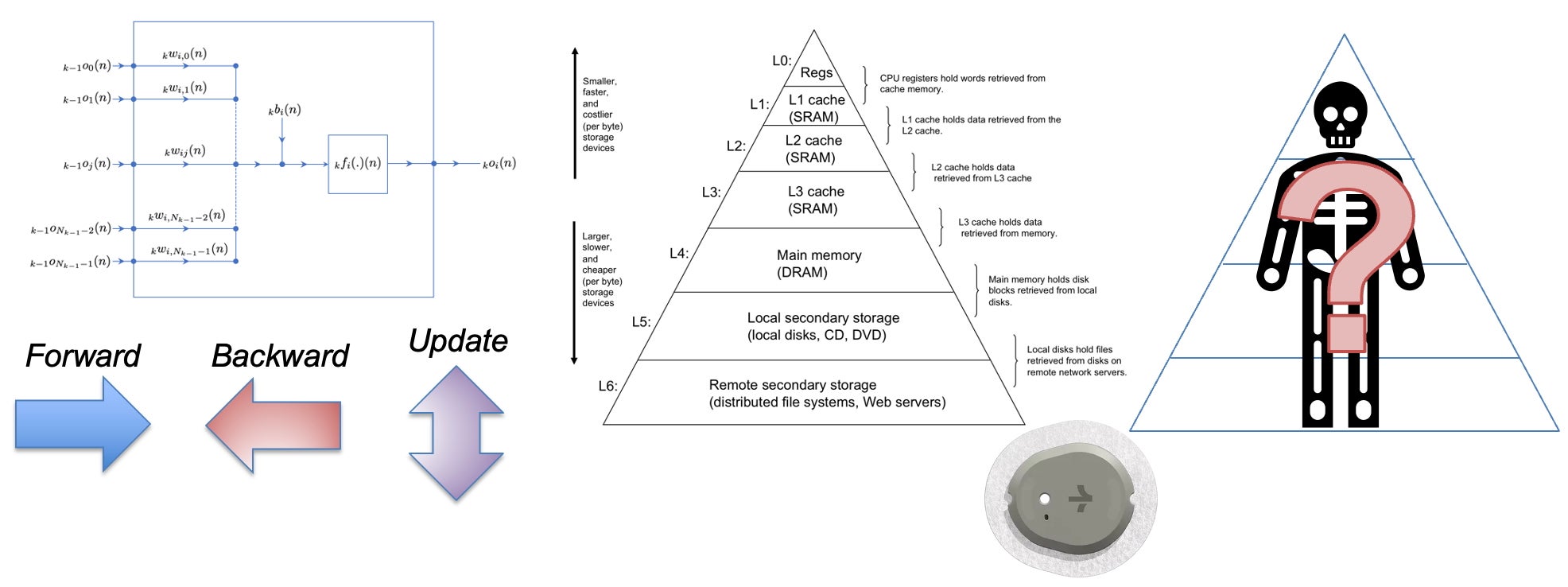METANOIA=ARCH&(ML^METABOLISM)
 Team Advisor/PI
Team Advisor/PI
Ray Simar
Project Description/Research Team Goals
The projects will investigate and develop novel approaches to some important problems:
1. Architecture for machine learning: we’ll study the various architectures targeting machine learning from embedded to servers. And we’ll review the work done by my great teams the last two years and talk about future directions in computing machines for ML.
2. Architecture for modeling metabolism: this applies computer engineering concepts to understanding human metabolism; from CGMs (Continuous Glucose Monitors) to the energy hierarchy in humans (which mimics the memory architectures we discuss in class) to hybrid mathematical models.
Issues Addressed
Several topics include: A new ML framework driven from an architectural approach, addressing throughput and power. Extending the CGM concept to more molecules. Developing a model of key hormones involved in metabolism.
Research Methods and Technology
The ML framework will include software simulation and FPGAs for high speed prototypes. The CGMs will be a joint effort focusing on the sensors and the microcontroller. The modeling of hormones will be a hybrid approach using control theory and neural networks.
Preferred Undergraduate Interests
N/A
Academic Majors of Interest
Open to all!
Prior Preparation/Requisite Experience
None!
Compensation
Work study-eligible students may receive compensation from OURI.
Course Credit
VIP 491
Team Meeting
We will use Google Chat for frequent chat and will typically have team meetings every two weeks.
Actively Onboarding New Members
Yes
Ready to Apply?
Use the linked Google Form to submit your application!
Contact
For more information or if you have any additional questions, please email Prof. Ray Simar (ray.simar@rice.edu) or Ms. Norma Santamaria (nsamtamaria@rice.edu).
